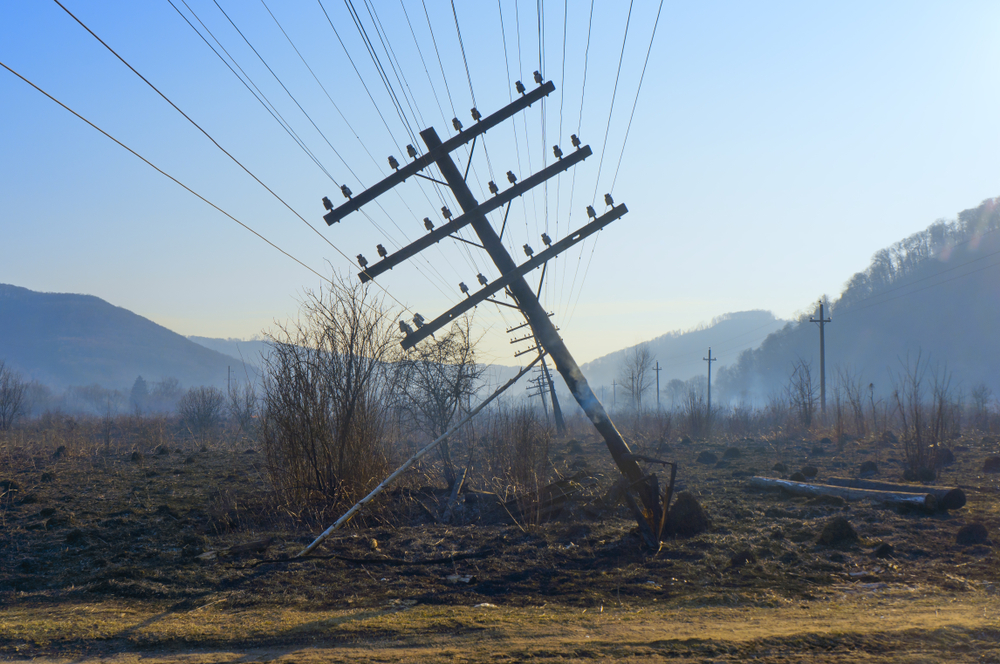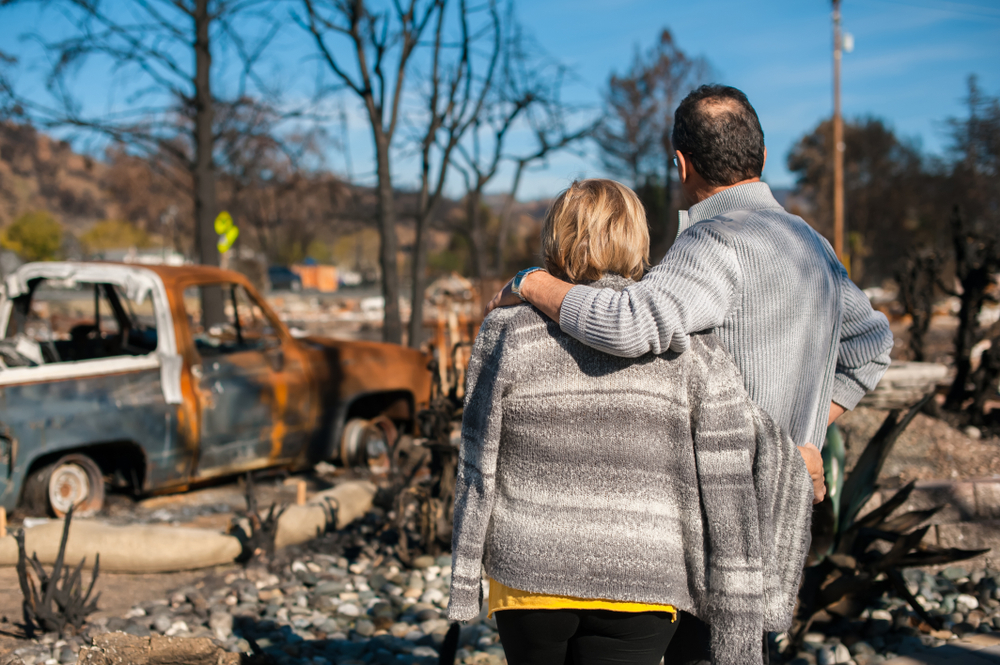
Common Causes of Wildfire Property Losses
Understanding Why Homes and Businesses Suffer in California Wildfires
California Wildfire Landscape
Wildfires have become a harsh reality for many Californians. Each year, flames threaten homes, businesses, and entire communities. Whether you live in the foothills, near open land, or in a city edge neighborhood, you may be at risk. Understanding why these property losses happen can help you prepare, protect your family, and know your rights if your property is damaged.
Wildfire property losses do not just affect personal property. They can impact your ability to work, your health, and your community’s future. If your home or business has suffered damage, understanding the causes can be the first step to recovery. For more on the broader scope of wildfire law in the state, see our California Wildfire Practice Area page.
What Makes Properties Vulnerable
Not all buildings are equally at risk in a wildfire. Some factors make property losses more likely and severe:
- Proximity to dense vegetation or forests
- Construction materials that are not fire resistant
- Lack of defensible space around the structure
- Poorly maintained roofs and gutters
- Inadequate community fire breaks
- Old or poorly maintained electrical systems
If you’re concerned about your risk or recovery options, our detailed overview of property damage claims in California offers practical advice.
Drought and Weather Patterns
The weather in California plays a huge role in wildfire risk. Extended drought conditions dry out soil, trees, and grass. Hot, dry winds—like the Santa Ana winds—can spread flames rapidly, sometimes with little warning.
- Low humidity levels
- Prolonged periods without rain
- High temperatures
- Intense wind gusts
For more about how climate factors drive property losses, see Common Causes of Wildfire-Related Fatalities.
Utility Equipment Failures
Faulty power lines and electrical equipment are a leading cause of many major California wildfires. Power companies may not always maintain their equipment properly, and downed lines or failed transformers can spark fires that devastate entire communities.
- Aging utility infrastructure
- Lack of regular maintenance
- Delayed response to hazardous conditions
- Equipment failure during wind events
If you suspect utility negligence caused your loss, read How Utility Failures Spark Wildfire Lawsuits.
Human Activity
Many wildfires start because of human actions, both accidental and intentional. Everyday activities can have unintended consequences when conditions are dry and windy.
- Unattended campfires or grills
- Burning debris or trash
- Sparks from vehicles or equipment
- Cigarette butts tossed carelessly
- Arson
For tips on documenting your losses for a claim, check out How to Document Property Damage for Claims.
Inadequate Defensible Space
California law requires homeowners in wildfire-prone areas to create defensible space around buildings. This space slows the fire's approach and gives firefighters a chance to defend the property.
- Overgrown vegetation near structures
- Stacked firewood against homes
- Lack of cleared brush and debris
- No fire-resistant landscaping
Learn about practical steps for property protection in Recovering Full Compensation for Fire-Damaged Homes.
Construction Materials and Building Codes
Older homes and buildings often use materials that are far less fire resistant than modern codes require. This can greatly increase the risk of loss.
- Wooden roofs and siding
- Single-pane windows
- Gaps in eaves or vents
- No fire-resistant coatings
Recent building codes in California have improved fire safety, but not all structures are up to code. For more about your rights after a loss, see California Property Damage Lawsuits Explained.
Insurance Gaps and Underinsurance
Many property owners find, after a wildfire, that their insurance policy does not fully cover their losses. This can be due to policy exclusions, outdated coverage, or low policy limits that do not reflect current construction costs in California.
- Excluded wildfire events
- Insufficient dwelling coverage
- Limited additional living expense benefits
- High deductibles for fire damage
If you are facing a denied or underpaid claim, our page on Underpayment of Claims explains your options.
Smoke, Ash, and Water Damage
Even if a wildfire does not directly burn your building, smoke, ash, and water used to fight the fire can cause serious and costly property damage.
- Soot and smoke infiltration
- Contaminated HVAC systems
- Water damage from firefighting
- Mold and corrosion
To learn more about these secondary damages, visit Why Smoke Damage Leads to Lawsuits.
Delayed Emergency Response
Sometimes, the speed or effectiveness of emergency services can affect how much property is lost. Limited resources, blocked roads, or overwhelmed local agencies can mean slower evacuations and less protection for homes and businesses.
- Insufficient evacuation warnings
- Delayed firefighter arrival
- Limited water supply
For guidance on recovering evacuation-related costs, see Recovering Costs from Wildfire Evacuations.
Local Zoning and Land Use
Zoning laws and land use decisions by local governments can affect wildfire risk. Building in high-risk areas, having narrow access roads, or failing to require fire-resistant construction can increase losses.
- New development in wildland-urban interface zones
- Inadequate escape routes
- Limited enforcement of fire safety codes
The Role of State Laws
California has some of the nation’s strictest wildfire prevention and building safety laws. These include requirements for defensible space, fire-resistant materials, and regular inspections. However, enforcement can be inconsistent, and compliance varies.
- California Public Resources Code Section 4291 (defensible space)
- Building Code Chapter 7A (fire-resistant construction)
- Local fire ordinances
For more on legal obligations and your rights, see our Wildfire Wrongful Death and Utility Negligence pages.
How to Protect Your Rights
If you have suffered property losses from a California wildfire, there are steps you can take right away to protect your interests:
- Document all damage with photos, videos, and written notes
- Keep receipts for repairs and replacement costs
- Review your insurance policy carefully
- Report your loss to your insurer promptly
- Consult a legal professional about your rights
For help with challenging insurance denials, see How to Challenge Wrongful Coverage Denials.
Damages You May Recover
Wildfire property loss claims can cover a wide range of expenses. Depending on your situation, you may be eligible for compensation for:
- Repairs or replacement of structures and contents
- Debris removal and clean-up
- Additional living expenses if displaced
- Loss of use of your property
- Diminished property value
- Emotional distress in some cases
To understand more about possible compensation, read California Smoke Damage Claims Against Insurers.
Frequently Asked Questions about California Wildfire Property Losses
What are the main causes of wildfire property losses in California? The leading causes include utility equipment failures, human activity, drought and extreme weather, inadequate defensible space, and buildings not up to fire-resistant codes.
Does insurance cover all wildfire property damage? Not always. Some policies exclude wildfire losses or limit coverage, so review your policy and consult an attorney if a claim is denied or underpaid.
What is defensible space and why is it important? Defensible space is the cleared area around a structure designed to slow wildfire spread and protect buildings. California law requires certain minimums for properties in high-risk zones.
What should I do if I suspect a utility company caused my losses? Document the damage, keep records, and speak with an attorney. Utility negligence may entitle you to compensation through a legal claim.
Can I recover costs if smoke or water, not flames, damaged my property? Yes, many insurance policies cover smoke, soot, and water damage from firefighting efforts, but coverage can vary, so review your policy.
We’re Here to Support You
Wildfire property losses can feel overwhelming, but you do not have to face the process alone. Attain Law attorneys are available to guide you through your options, help you understand your rights, and fight for the full compensation you deserve. If you need answers or want to begin your claim, contact us today for a free consultation or call (888) 970-8627.
Disclaimer: This is an advertisement. The information provided is for general purposes only and is not legal advice. Consult a qualified attorney for your specific case. Attain Law cannot guarantee outcomes, as results vary by situation.
Browse Other Articles for "Property Damage" in California:
Start Your FREE Consultation
Complete the form for a Free Consultation. No upfront fees, swift action, and we’re only paid when we succeed for you.
Why Choose Attain Law?
- No Upfront Costs
- We operate on a contingency fee basis—you pay nothing unless we win your case.
- Personalized Attention
- Every case is unique. We tailor our strategies to fit your specific situation.
- Proven Track Record
- Our firm has successfully recovered millions for our clients.
- Statewide Representation
- Based in Woodland Hills, we serve clients throughout California.
Justice Is One Step Away
Ready to turn your struggle into strength? At Attain Law, we’re here to take on your fight—whether it’s a car accident, a dangerous drug, or a workplace injury gone wrong. One call starts it all, and we’re with you every step, no upfront cost required.
- Free Case Review
- No Fees Until Victory
- Millions Recovered
- Personal Strategy
- California Coverage
- Relentless Case Pursuit



